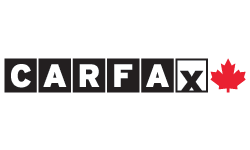By Blair Qualey
This week, British Columbia’s Economic Update revealed a substantial level of debt and deficit, and the pressure is on government to find new revenue. But here’s the reality: families and businesses in BC are already at a breaking point. Consumers can’t afford higher costs, and the new car sector can’t absorb more taxes. If government keeps adding layers, the result won’t be more money—it will be less.
Everything costs more these days—housing, food, childcare, gas—and vehicles are no exception. The average new vehicle now sits around $66,000, and the price continues to climb. Why? Because automakers are pouring billions of dollars into cleaner technologies, advanced safety systems, and modern features. These investments make cars safer and more sustainable, but they also push sticker prices higher at a time when families are already stretched thin.
And it’s not just buyers feeling the squeeze. Local dealerships—many of them small businesses—are also under pressure, facing skyrocketing property taxes, tariffs that drive up parts costs, and global supply chain challenges.
So, we get concerned about the prospect of raising or adding new taxes to deal with its deficit, we have to say: enough is enough.
Why This Matters to You
- Ordinary vehicles are being taxed like luxury items. The so-called “luxury tax” kicks in at $55,000. But today, that includes everyday trucks, SUVs, and vans that families and small businesses rely on.
- People are shopping out of province. We are hearing anecdotally that an increasing number of British Columbians are heading to Alberta to buy vehicles at lower cost, taking both jobs and tax revenue out of BC.
- Fewer options in rural communities. Because of strict zero-emission vehicle mandates, automakers are sending fewer gas-powered vehicles to BC. That leaves rural and remote families, in particular with fewer choices and higher prices.
- Uncertainty in the EV market. Electric vehicles are part of the future, but with rebates on pause, many buyers remain hesitant. Dealers are investing heavily in EV facilities and training, but sales aren’t keeping pace.
These pressures aren’t just adding up—they’re compounding.
We know government has tough choices ahead. But taxing families and small businesses even more isn’t the solution. It will only drive sales out of province, reduce revenue, and put good jobs at risk.
Instead, there are better options:
- Increase the “luxury” tax threshold so it reflects today’s real-world vehicle prices.
- Put the brakes on the ZEV mandate until consumer demand catch up.
- Reinstate stable, predictable EV rebates.
- Resist new or higher sales taxes that will only make vehicles less affordable.
At the end of the day, this isn’t just about cars. It’s about affordability, fairness, and protecting BC jobs. If government keeps piling on more costs, everyone loses: families, small businesses, and even the province’s own bottom line.
What do you think? Should BC push pause on new taxes until families can catch their breath?
Blair Qualey is President & CEO of the New Car Dealers Association of BC. He can be reached at [email protected]










